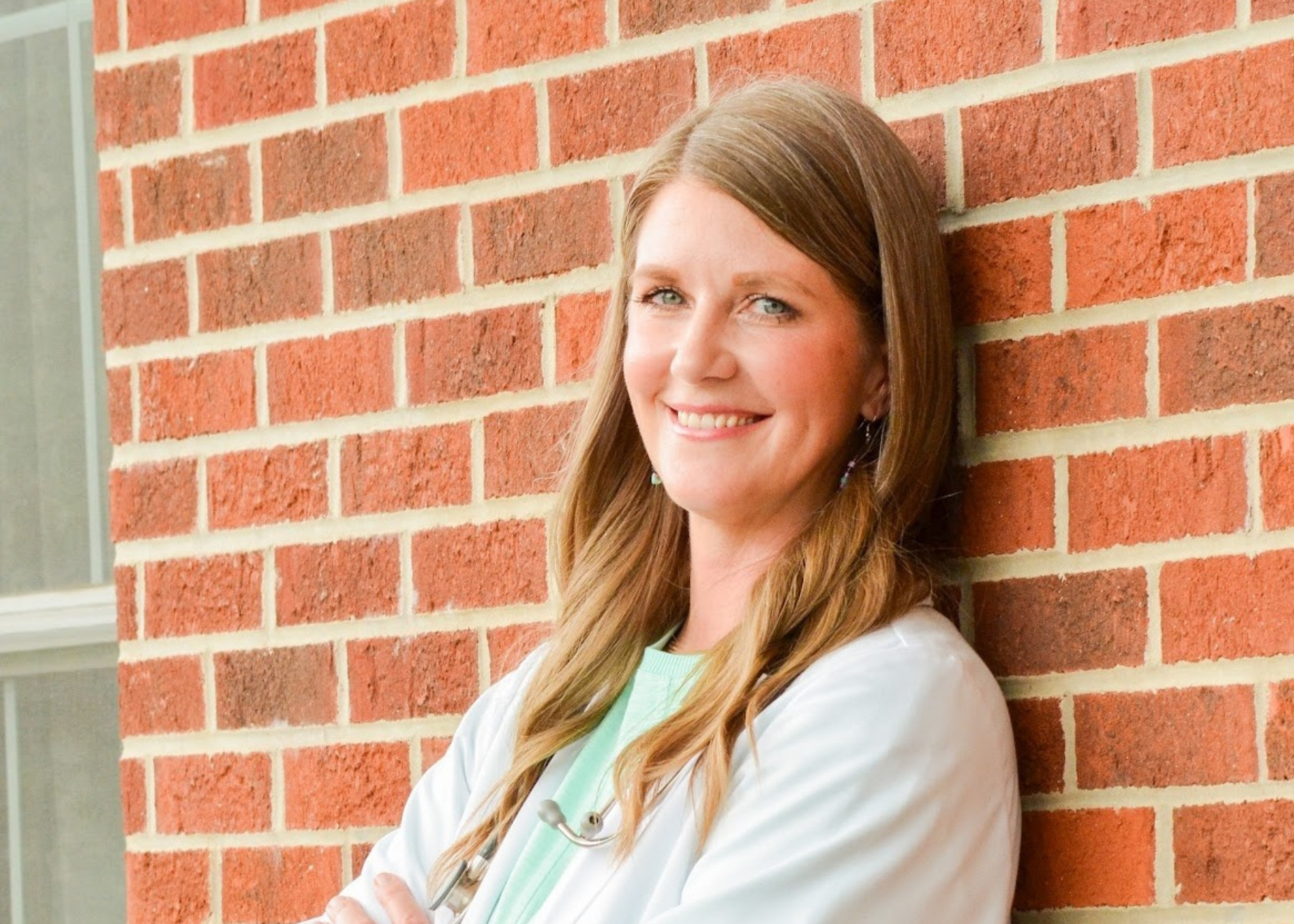Changing Tracks: How Shannon Allison Found Her Calling in Women’s Health
Women's Health NP student Shannon Allison is using her resilience, advocacy, and unconventional background to improve rural healthcare access in Western NC.

Shannon Allison didn’t begin her career in scrubs or surrounded by medical charts. Instead, she spent nearly a decade navigating the fast-paced world of international supply chain logistics. But a series of personal health challenges—and a transformative experience as a patient—led her to reevaluate everything. Today, she’s working to become a Women’s Health Nurse Practitioner, bringing her unique blend of professional experience, personal resilience, and deep compassion to the frontlines of rural healthcare in Western North Carolina.
“I grew up and always kind of had an interest in health care,” Allison recalled. “I actually took health science and medical science classes all through high school.” Despite this early interest, she pursued a business degree at Appalachian State University, attending on a track scholarship. She found her career in supply chain and logistics dynamic and interesting, but something was missing.
“Every time I found myself in a doctor’s office or somewhere getting imaging or one of my many surgeries, I always felt like this is where I should be,” she said. “I would love to find a way to work in health care.”
A Transformative Experience
Allison knew a change was needed after the birth of her second child, when she faced significant women’s health issues. In 2020, she underwent a hysterectomy and extensive pelvic floor reconstructive surgery. What was expected to be a complex but manageable procedure turned into a prolonged ordeal involving serious complications, multiple surgeries, and extended hospital stays.
“It was the nurses that were there with me and by my side when my family couldn’t be there,” Allison shared. “My surgeon and providers were in and out, but it was the nurses that were constantly at my bedside… cheering me on and supporting me in that journey.”
This experience was transformative. As Allison recovered and reflected, she realized she couldn’t return to her former career. She was inspired to pursue a Women’s Health specialty after shadowing the doctor who performed her surgeries. “After spending a summer with him in clinic, I knew I absolutely want to specialize in women’s health.”
Leaning into an Unconventional Path
But with a business degree and no nursing background, the path forward wasn’t clear. That’s when Allison found Duke University School of Nursing’s alternative entry program, which does not require a Bachelor of Science in Nursing degree. Instead, Allison earned an associate’s degree in nursing from a local community college and then pursued her master’s degree at Duke to become an NP.
“In spring of 2024, I got accepted to Duke University and I graduated from Blue Ridge Community College in May,” she says. “Then that June I passed the NCLEX and got my license, and in August I had my first semester here at Duke University School of Nursing.”
Her previous career in supply chain management, far from being irrelevant to her new career, has become an asset. “It’s process, it’s problem solving,” Allison explained. “To have a variety of life skills and professional skills that now come to the table with the clinical knowledge that I’m getting makes me very well-rounded.”
A Personal Mission
Allison’s personal health journey includes living with Ehlers-Danlos Syndrome, a genetic connective tissue disorder that is under-researched and often misunderstood. “It has presented in a lot of complex ways for me ever since I was a child,” she said. “Living in a rural community, finding providers that are specialized or are willing to kind of think outside the box can be really challenging.”
This reality has fueled her mission to improve healthcare access in Western North Carolina, where she was born and raised. “I want so deeply in my heart to be in a preventative, integrative space and be a provider in my community,” Allison said. “I want to help women navigate those complex paths and pull in my background in supply chain and think in creative ways about how we can address issues in rural communities.”
Advocating for NPs
Allison’s passion has also inspired her advocacy. In spring 2025, she represented Duke at a student policy summit in Washington, D.C., where she met with legislators to discuss the importance of nursing education and research. “One of my biggest takeaways from that experience was just sharing stories,” she said. “If I can do that on behalf of somebody else and share stories in a way that creates real change or brings resources to address a need, it’s really important.”
A key issue Allison works to champion is full practice authority for nurse practitioners. In many states, including North Carolina, NPs face restrictions that limit their ability to provide care independently, a barrier that disproportionately affects rural communities. “Rural communities across the nation, but particularly in Western North Carolina, have a limited number of providers as it is,” she noted. “Let alone a provider that truly specializes in women’s health and understands from a biological perspective the nuances and the different things that women need.”
Reflecting on her journey from business to nursing, Allison characterizes her new profession as her calling. “I know this is what I want to do,” she said. “To have an opportunity to do this, on a track that doesn’t take up a lot of time, and to serve my community in a meaningful way—it’s everything.”